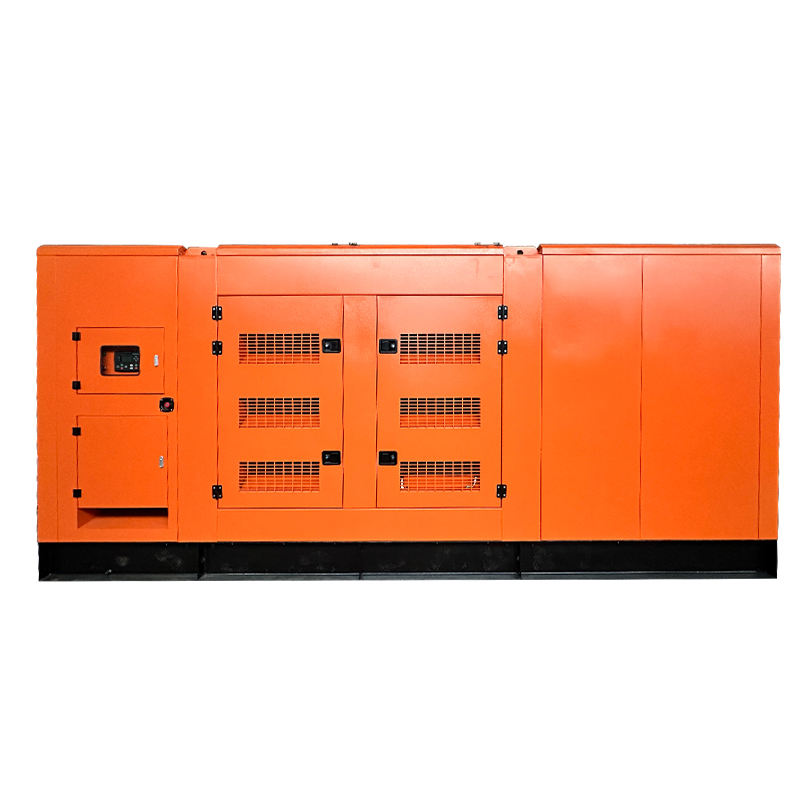Choosing the right generator involves many considerations, and the control system is paramount. A generator's control system determines how you interact with it, from startup and operation to monitoring and shutdown. This article delves into the ease of use associated with manual and digital control generator sets, examining the benefits and drawbacks of each for different scenarios.
Manual Control: Simplicity and Direct Interaction
Manual control generators offer a straightforward approach. These systems involve physically interacting with the generator through switches, levers, and knobs. Starting a manually controlled generator typically requires a key-turned ignition and a pull cord, much like a lawnmower. While this can be physically demanding, especially for larger units, it offers a direct, hands-on experience and a sense of control appreciated by some users. Manual control systems are typically found in smaller, portable generators used for residential backup power or recreational activities.
The simplicity of manual controls often translates to lower upfront costs and easier maintenance. With fewer electronic components, there's less to go wrong and troubleshooting can be more straightforward. This simplicity also makes them robust in environments with electromagnetic interference, which can sometimes disrupt digital systems. However, manual systems lack the automated features and remote monitoring capabilities of their digital counterparts.
Digital Control: Automation and Advanced Functionality
Digital control systems represent a significant leap in generator technology, providing a level of automation and sophistication unmatched by manual systems. These systems utilize microprocessors and electronic interfaces to manage and monitor various generator functions. Starting a digitally controlled generator can be as simple as pushing a button, either on the unit itself or remotely via a control panel or even a mobile app.
Digital generators often include advanced features like automatic start/stop functionality, load management, and remote monitoring. Imagine the power goes out during a storm; a digitally controlled generator equipped with automatic transfer switching can detect the outage and start up automatically, restoring power seamlessly. These features are invaluable for critical applications like hospitals and data centers, where uninterrupted power is essential.
Comparing Ease of Use: A Deeper Dive
When considering ease of use, the context of application plays a crucial role. For occasional use in recreational settings, a manual generator's simplicity might be preferable. The learning curve is minimal, and basic maintenance is relatively easy to handle. However, for applications requiring frequent use or automated operation, the convenience and advanced features of a digital generator become much more appealing.
Consider a homeowner who needs backup power during occasional power outages. A manual generator might be sufficient, especially if they are comfortable with the hands-on operation. On the other hand, a homeowner requiring automatic backup power for essential medical equipment would greatly benefit from the reliability and automated features of a digital system.
Ease of Monitoring and Maintenance
Digital controls provide extensive monitoring capabilities, offering real-time data on fuel levels, voltage, load, and running hours. This information is easily accessible through the control panel or remotely via a mobile app, enabling proactive maintenance and preventing potential issues. Manual systems, in contrast, rely on visual inspections and basic gauges, making monitoring less precise and potentially requiring more hands-on attention.
Imagine managing a large commercial building with a backup generator. With a digital system, facility managers can easily monitor generator performance remotely, ensuring it's operating efficiently and addressing any potential issues promptly. This level of monitoring is crucial for maintaining uninterrupted power and minimizing downtime.
Cost Considerations and Long-Term Value
While manual generators typically have lower upfront costs, digital generators often offer better long-term value. The advanced features and automated capabilities can lead to fuel savings, reduced maintenance costs, and increased reliability. Furthermore, the convenience and peace of mind offered by automatic operation and remote monitoring can be invaluable in critical applications.
Practical Applications: Tailoring the Choice to the Need
From construction sites and outdoor events to hospitals and data centers, generators play vital roles in diverse settings. Understanding the specific needs of each application is crucial for choosing the right control system. A construction site might benefit from the rugged simplicity of a manual generator, while a hospital requires the reliability and automated features of a digital system.
Think about powering a remote cabin off-grid. A manual generator offers a reliable, albeit less convenient, power solution. Conversely, powering a critical telecommunications facility demands the sophisticated automation and remote monitoring capabilities of a digital generator to ensure uninterrupted service.
Making the Right Choice: Factors to Consider
Choosing between manual and digital control ultimately depends on your specific needs and priorities. Factors to consider include frequency of use, required level of automation, monitoring needs, budget constraints, and the criticality of the application. If you prioritize simplicity and low cost for occasional use, a manual generator might be suitable. However, if reliability, automation, and advanced features are paramount, a digital generator is the clear choice.
What are your power needs and priorities? Are you powering a small campsite or a critical business operation? Answering these questions helps clarify which control system best suits your requirements.
Conclusion: Balancing Simplicity and Sophistication
Both manual and digital control generator sets offer distinct advantages in terms of ease of use. Manual controls provide simplicity and direct interaction, while digital controls offer automation and advanced functionality. Ultimately, the "easier" option depends on the specific application and user preferences. By carefully considering the factors discussed in this article, you can make an informed decision and choose the control system that best meets your needs.





